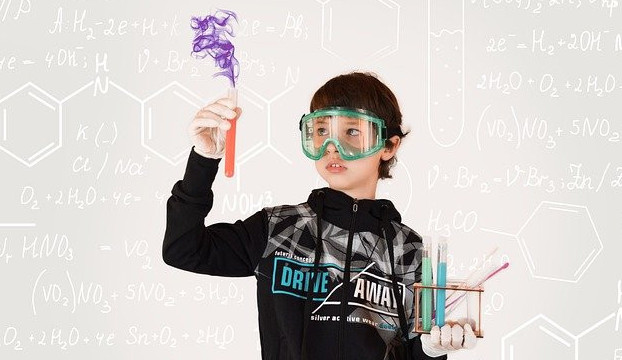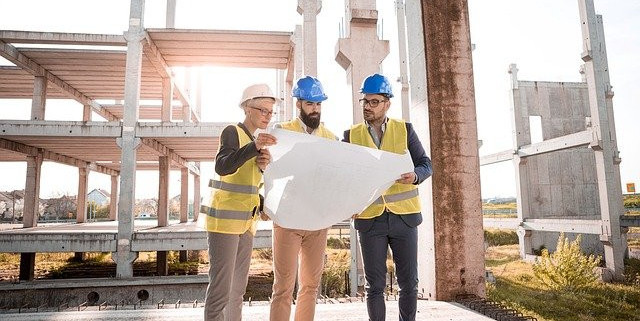When you think about science lessons, what is your first thought? Crusty old chemistry lesson, blue-flamed Bunsen burners, and baffling physics equations? Or eco-powered racing cars, competitive robot wars, and new ways to explore space for example? If you answered ‘yes’ to the first set, then it’s clearly been a while since your last science lesson, because things have changed a lot. And British Science Week could help you catch up!
In the 20th century, most pupils studied science as separate, individual subjects (chemistry, physics, and biology). Researchers found, however, that in many schools, girls tended to drop physics early, and boys often stopped biology when deciding their GCSE options. This meant gaps in their education in important subjects and they did not get as broad a science education as they might.
Moreover, the result of these early choices had an impact on the later take-up of many science subjects in universities. I remember doing physics A’ Level in the 1980s yet I was one of only 2 girls in the school taking this at A’Level, and there were only 8 of us girls that did it at GCSE. But luckily, things have changed.
A new approach
To combat this, strategies were developed to give everyone a more comprehensive science education when the new GCSEs were brought in. For example, in 2006, a combined science GCSE was introduced where students studied approximately 2/3rds of the content of the single subjects. Subsequently if successful, they were awarded 2 GCSEs, which became known as ‘double science’. For super scientists, ‘Triple science’ as it’s known now, is still available and you can also do a single science GCSE as well. What’s important is that in all options, students study, and sit a paper in physics, chemistry, and biology.
With these new qualifications, came strategies too to help support and revolutionise the teaching of science throughout all educational years. The new term ‘STEM’ (science, technology, engineering and maths) was introduced and schools began collaborative and cross-curricular projects to show the relevance of these subjects in today’s world. Schools made eco-cars, and robots and experimented with flight for example. British Science Week is another initiative to highlight and promote a very broad view of science in the curriculum.
What is British Science Week?
British Science Week (BSW) celebrates anything and everything related to STEM, and although it officially lasts for only one week, it actually runs for slightly longer than a week, from the 11–20th March 2022, and is coordinated by the British Science Association, and funded by the UK Research and Innovation (UKRI). In fact there are events running through most of the year which you can find out by using the online ScienceLive search engine. Events run all year, all over the country so you don’t have to restrict yourself to the British Science Week March dates.
One of the great things about BSW is that there are no restrictions on the types of events that are run or the topics they cover. Anything goes as long as there is a basic underlying link to science, technology, engineering, or maths. The subsequent programme is, therefore, full of amazingly diverse and varied events. They are aimed at lots of different sections of society so there is something suitable for all people and all ages and abilities. Really, the only limit is the imagination of the organisers, which could be you!
Who is it for?
Each year, thousands of people get involved including teachers, students and parents as well as community groups, global organisations, and industry. The reach is wide and in 2019 there were over 82,000 downloads of the free activity packs, 35,000 tweets and 700 media posts. Moreover, BSW reached over 68 million people worldwide, which is approximately the same number of people who live in the UK. So, British Science Week is the real deal!
Reasons to take part
- It can inspire young minds to explore, build, create and experiment
- It celebrates the best of British science
- There are tons of free resources on the website
- You can network with other interested people or local groups
- It’s fun and engaging and you can do lots of hands-on activities
How can you get involved?
The BSW website is full of information and advice on how to get involved. It has lots of specially designed activity packs aimed at early years pupils, primary pupils and secondary school pupils. This year’s theme is ‘Growth’ but you can also still download packs from previous years based around different themes. These have included such things as ‘Innovating the Future’ and ‘Our Diverse Planet’. You can download them here. There’s also a “Fun, Family Science” pack that parents, carers, aunts, uncles, and grandparents can use if they want to do some family science outside of an educational setting.
The organisers have put the packs together well with lots of fun things to do. And you will find something for everyone. They usually include information, lesson plans, word searches, crosswords, fact sheets and colouring sheets. Additionally, they contain information about future career choices for older students, which can help students learn more. And there is also a poster art competition you can encourage children to enter too.
Organise your own event
Finally, how about setting up your own event? You could organise your own event either with a school, youth group, nursery or other local community group. You’ll also find information to help you including downloadable ‘how-to’ guides, posters, logos and marketing materials. There are also small grants for some projects. Contact the organisers by email bsw@britishscienceassociation.org at any time for help too.
Reach out to your local community
If you think about it, there is not much around is that is not related in some way to STEM although we often take it for granted. How often have you really thought about how much science we rely on all day, every day? Think about your car, your heating system, your lights and energy systems. Then there’s the medicine in your bathroom, the plants growing in your living room, your TV, computer, dishwasher, internet, smartphone…. The list is endless, and you have not even left your property! All these are proof that science is all around us, and how much we now rely on it.
One way to increase your children’s interest in STEM things is to get them to realise how much science is around. Go around your house and make a list. You’ll be surprised and so will they! Even in traditional non-STEM subjects like drama and art, there is an element nowadays. Think of the lighting and special effects in a theatre for example, or the chemistry and physics that go into mixing paint. 
Meet the scientist
Another way to inspire children is to get your local community members to talk about, or show how science has influenced them. Why not set up an informal ‘meet the scientist’ event and invite the local children to hear what they have to say?
For example, you could think about:
- Doctors
- Dentists
- Nurses
- Engineers
- Architects
- Builders
- Chefs/cooks
- Pharmacists
- Accountants
- Photographers
- Lighting designers
- Researchers
- Data analysts
I’m sure you can think of more. And if you really want to get involved, and you work in a STEM industry, why not partner up with your local early years, primary school or secondary school and offer to help them by sharing your knowledge and forging new partnerships?
Some easy science experiments you (or anyone) can do
British Science Week is meant to be fun and you really don’t need a lot of money to get your children involved. The website has a guide to “Science on a shoestring” for those on limited budgets, where the most important thing is to remember to have fun and be creative!
Below is a list of simple experiments you can set up at home to introduce children to STEM topics. :
- Investigate solids, liquids and gases using ice, water and steam
- Set up a weather station
- Grow some plants from seeds or cuttings
- Search for minibeasts in a park or garden
- Make some slime or playdough
- Experiment with why things float or sink using different objects and water in a washing-up bowl
- Grow some crystals – you can find some commercial child-friendly packs online
- Look at different stones/gems and talk about geology
- Go on a nature walk to spot some wildlife
- Have a competition to see who can build the tallest tower
- Make a
- Looking at the properties of different materials e.g. wood, cotton wool, wire
- Investigating magnets
There are a lot of commercially available science kits on the market too and I’ve listed a few of my favourites below. You can use these to have some educational fun with your children. Just make sure you follow the instructions carefully and take all the safety precautions necessary and recommended.
Have fun and enjoy it!
Some of the links on this page are affiliate links. Companies may pay me a small commission if you buy a product from them via this site, but this does not affect the price you pay.











I am excited about British Science Week because my boy is really into science. He is always asking questions and I frankly, do not have all the answers. When I went to school, science was taught in different subjects as you mentioned at the beginning of your post. And I recognize, things have changed a lot.
I recently discovered that Elon Musk created a school for his own children. He was not happy with the way science was taught and always suggested it should be integrated into one big subject. He may know what he’s talking about!
I actually feel that way about a lot of subjects and I’m a teacher in a secondary school. A lot of people compartmentalize knowledge and struggle to apply it to different situations, or they don’t make the links between subjects, which is a shame. I did not know about Elon Musk’s school but I’m interested to find out!
Wow I heard about the British Science Week from a friend but I didn’t know what it was all about, I will surely participate in the one coming up this year, I reside in the US though.
Hi there. There are some virtual events you can join from anywhere in the UK. Hope you have fun.